Postgraduate Education
Residency in Diagnostic Imaging
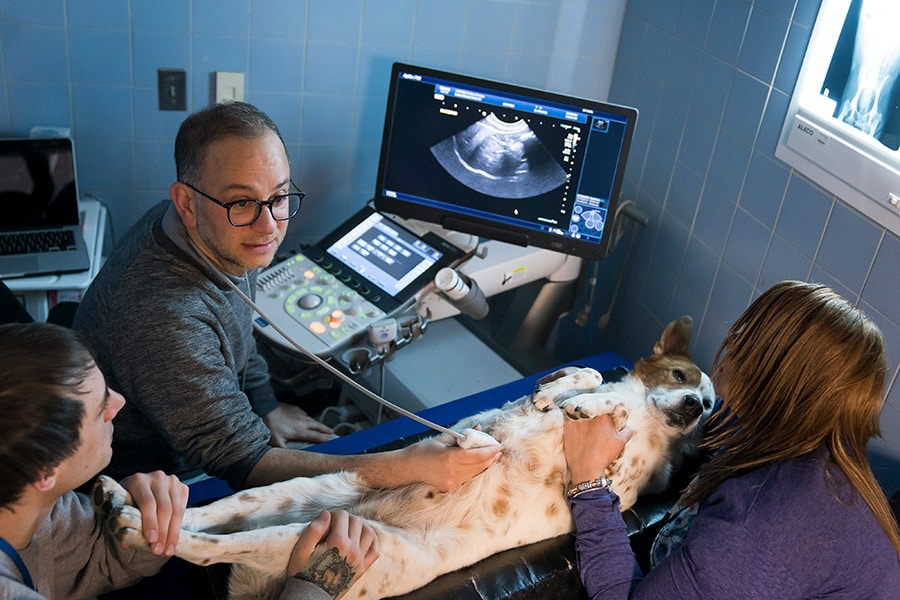
The Schwarzman Animal Medical Center offers a three-year residency program in radiology that fulfills the requirements of the American College of Veterinary Radiology (ACVR). Our program consists of clinical experience in five core modalities: diagnostic radiology/fluoroscopy, ultrasound, computed tomography, magnetic resonance, and nuclear medicine, while working closely with specialists in other disciplines.
The residency application is available through the American Association of Veterinary Clinician’s (AAVC) Veterinary Internship and Residency Matching Program (VIRMP) when a position is available.
Senior Staff
Antonia DeJesus, DVM, DACVR
Anthony Fischetti, DVM, MS, DACVR – Residency Supervisor
Eunbee Kim, DVM
Introduction
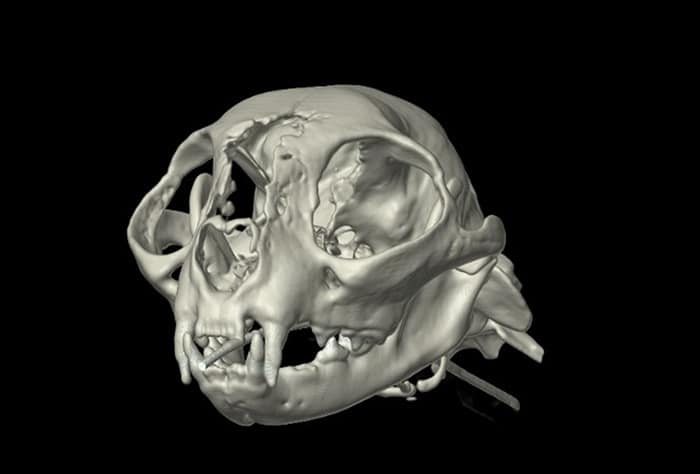
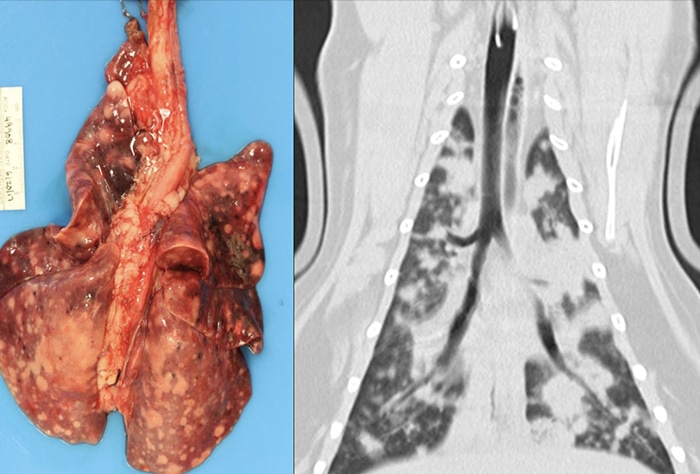
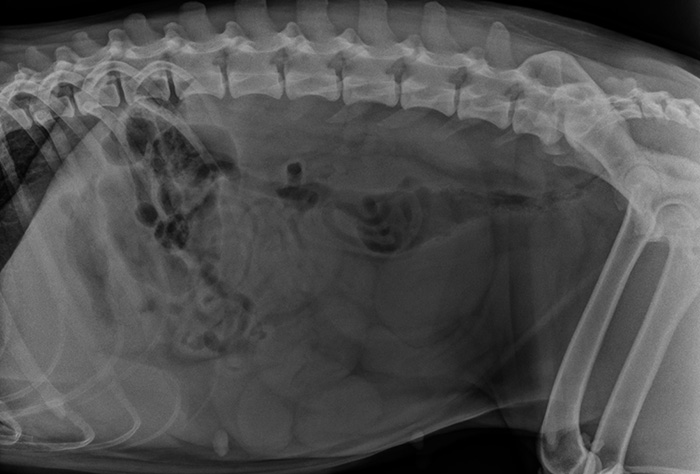
AMC is a high-volume hospital that sees nearly 60,000 cases annually. Approximately 20,000 imaging studies in the core modalities are performed annually. Small animals (canine, feline) comprise 90% and exotics species comprise 10% of our caseload. We also work closely with the local zoos and aquariums to provide advanced diagnostic imaging for their animals. Radiology residents are responsible for reading over 90% of the cases. All radiology, CT, and MR reports drafted by a resident are approved by a board-certified radiologist. Most cases are approved during in-person rounds. Turn-around time for imaging reports is generally 24-48 hours. In year two of residency, residents begin finalizing their own ultrasound reports with ample opportunity for radiologist consultation.
The AMC Diagnostic Imaging Service is open 7 days/week, to include an on-duty board-certified radiologist for each day. One or more on-duty radiologists are physically present at AMC six days/week. Resident-run ultrasound service is reserved for Sundays, with an on-duty radiologist available for consultation remotely.
Residents are exposed to all modalities starting their first year of residency. In general, a resident can expect the following:
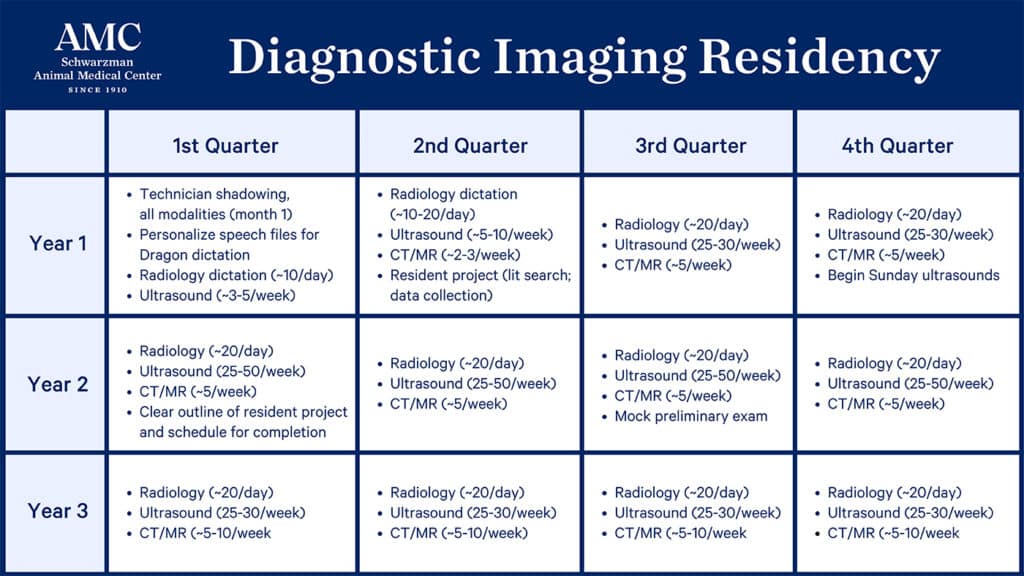
Radiology rounds occur once or twice daily for approximately 2 hours per session. This time focuses on approval of drafted reports written by all residents, discussion of anatomy and physiology, and pertinent publications/resources. All residents working that day are expected to be in attendance.
Emergency after-hours responsibilities are limited to the occasional teleconsultation request from the Emergency Service (approximately between the hours of 5 PM to 10 PM). There is no after-hours ultrasound, CT, or MRI performed by the Diagnostic Imaging residents or doctors. However, residents are expected to be competent in running CT/MRI during the day when the department is short on technicians.
On Sundays and major holidays, a resident who has had at least 8 months of training in ultrasound is assigned to ultrasound duty. Resident-run Sunday ultrasound duty is shared among the residents. The on-duty radiologist is available for remote consultation. Robust tele-consultation technology is available, including Mirror and Microsoft Teams software for real-time evaluation of ultrasound scans.
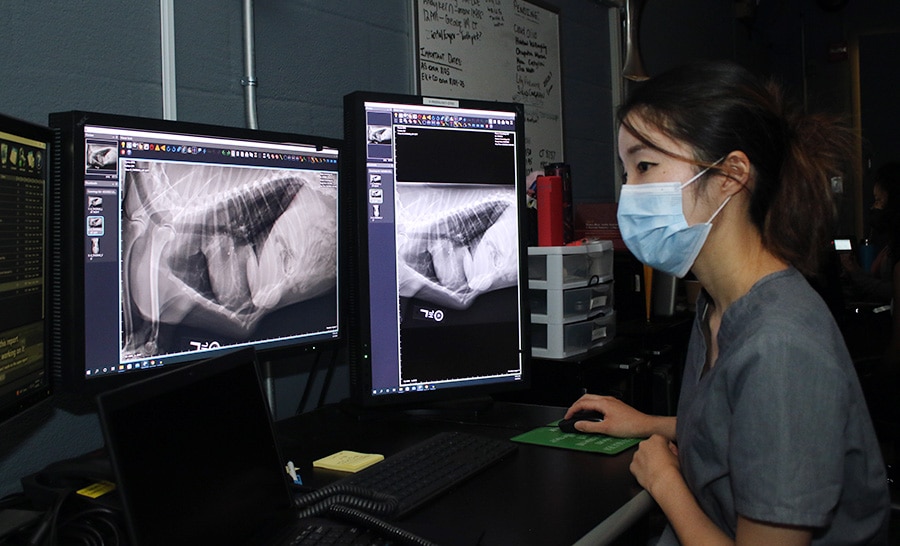
All residents are provided with the appropriate equipment (Dragon software, laptop, workstations in AMC reading rooms) to generate reports through dictation. Residents are expected to be proficient in dictation within the first 3 months of the residency.
Most of the training will take place at the Animal Medical Center. Four weeks will be conducted off-site to fulfill residency training in large animal radiology and scintigraphy. An affiliation agreement between Schwarzman Animal Medical Center & Cornell University Hospital for Animals (Ithaca, NY) is updated yearly, allowing AMC residents to rotate through Cornell’s imaging department. This four-week rotation usually takes place in late summer/early fall at the beginning of year-two of the residency. An additional 2-4 weeks can also be applied to rotations other than diagnostic imaging (eg. interventional radiology, cardiology). Depending on scheduling, these other weeks can be pursued at various times during the residency. Most residents elect to rotate in other specialties towards the end of year-three, prior to graduation and the certifying exam.
We offer a comprehensive training program that prepares our residents for successful completion of the ACVR examinations. Residents are expected to take their board exams (preliminary and certifying exam) upon eligibility.
Facilities
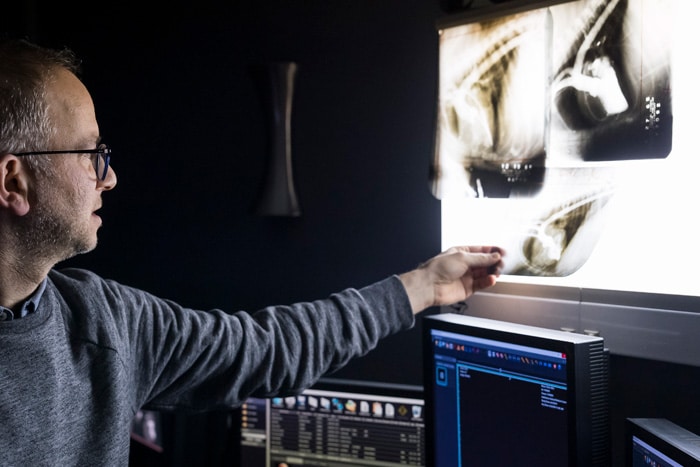
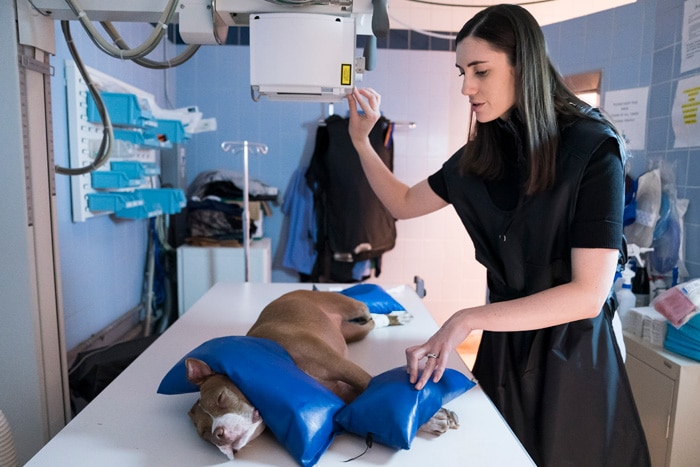
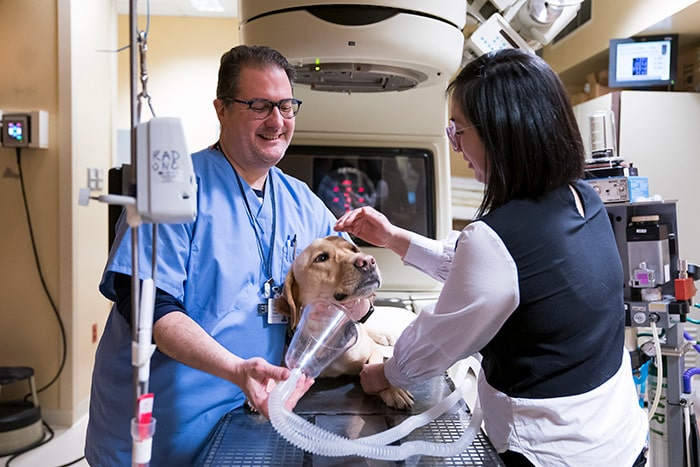
- Two diagnostic radiology suites (Canon CXDI Plates; NE software)
- Two ultrasound machines (Canon Aplio i700)
- 64-detector CT (Toshiba Aquillion)
- 1.5T MRI (Siemens Magnetom Sola)
- Siemens Artis Zee ceiling-mounted fluoroscopy unit
Employment and Benefits
Salary, health & professional liability insurance, vacation (PTO), CE, etc. – Detailed on VIRMP description
Educational Opportunities
- Medical Physics course taught by faculty from Memorial Sloan Kettering Cancer Center offered every other year.
- On-line course, 10-weeks, focusing on imaging physics for the core modalities, radiation biology, and safety
- Instructor: Pat Zanzonico, PhD, DABR– Member and Attending Physicist, Co-Head of Small-Animal Imaging Core, Memorial Sloan Kettering Cancer Center.
- Large animal radiology & nuclear medicine rotation to be completed at Cornell University College of Veterinary Medicine
- Written or oral known case conference offered on a regular basis
- Monthly journal club to review recent and important publications usually associated with a clinical case or topic of interest
- 2-4 weeks of rotations with other services can be arranged (Cardiology, Neurology, Interventional Radiology)
Research Opportunities
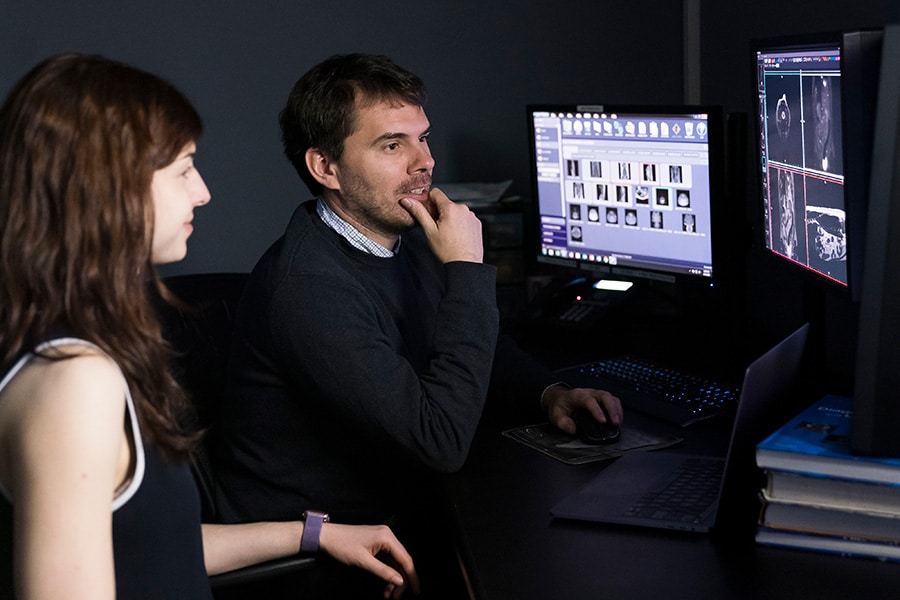
In keeping with our research mission, the Schwarzman Animal Medical Center requires its residents to complete original research/clinical investigation with the intent to publish. Time off-clinics for clinical investigation begins towards the end of year-one or the beginning of year-two of residency. Two days/month are initially allotted, with more time available to meet grant and presentation deadlines. Diagnostic imaging residents are encouraged to present an abstract at the ACVR’s annual meeting.
Information for International Applicants
All applicants must have documented proof to work in the United States.
If you have any specific questions about the residency program or visiting the Schwarzman Animal Medical Center, please contact:
Dr. Anthony Fischetti, DVM, MS, DACVR
Department Head, Diagnostic Imaging
Senior Veterinarian






























